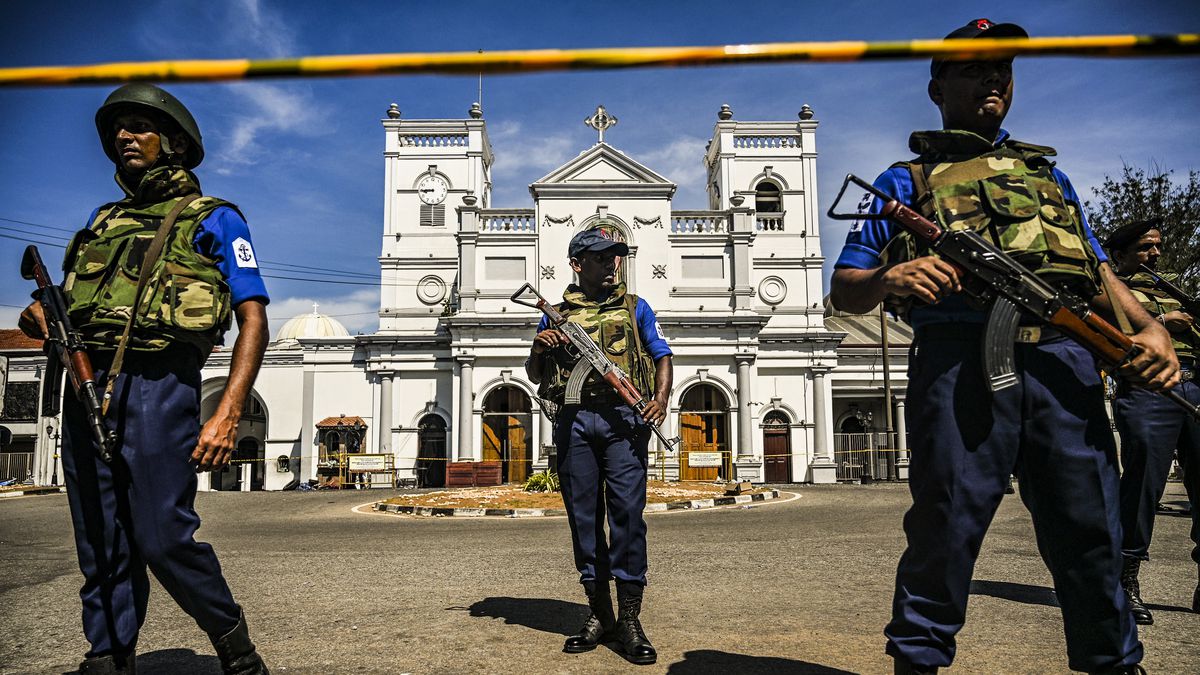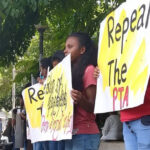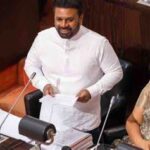
Wide Angle zoom in to Escalating Violence and the Struggles of Law Enforcement
- CNL Reporter
- February 24, 2025
- Weekly Political Review
- Weekly Political review
- 0 Comments
Weekly Political review
Sri Lanka’s National Security under Threat: A Deepening Law-and-Order Crisis
By Rohana Jith
Sri Lanka is facing an alarming rise in gun violence, highlighting serious shortcomings in law enforcement. The recent assassination of Ganemulla Sanjeewa inside a magistrate’s court exposed the police’s failure to address security threats effectively. Despite the government’s attempts to improve security, frequent mismanagement in police appointments has weakened the force, allowing crime to flourish.
Both serving and retired senior police officers stress the need for proactive policing instead of reactive measures. Corrupt officers working alongside criminals have further deepened the crisis, yet authorities have taken no action against those who amassed fortunes while handling high-profile investigations under the previous administration.
President Anura Kumara Dissanayake has vowed to eliminate the underworld in due course, but similar promises have been made by past leaders, some resorting to extrajudicial methods. Amid these developments, opposition groups are questioning the rise in custodial deaths, bringing attention to the troubling history of police operations.
Deputy Defence Minister, retired Major General Aruna Jayasekera, recently made headlines with a viral video in which he challenged critics of national security to meet him for a lecture. Meanwhile, government officials suggest that the recent spike in killings aims to derail investigations into major criminal cases, including a renewed probe into the Easter Sunday attacks. Retired Senior DIG Ravi Seneviratne claims the current administration has begun investigating these incidents despite political interference. However, the only indictments issued so far involve long-standing corruption cases against Namal and Yoshitha Rajapaksa.
Acting Police Chief Priyantha Weerasooriya noted that due to a lack of political support, many criminals have fled the country. In 2025 alone, there have been 17 shootings and five knife attacks, some involving former military personnel. Defence Secretary Sampath Thuyacontha revealed that trained soldiers have been leaving the armed forces and passing on their skills to criminal networks.
Despite these acknowledgments, authorities have yet to outline a clear strategy to tackle these threats. If intelligence reports suggest attempts to disrupt investigations, why are weapons and drug smuggling still rampant? The absence of decisive action raises concerns about the government’s ability to control organized crime.
Challenges to the Reform Agenda
The election of Anura Kumara Dissanayake and the National People’s Power (NPP) government signified a political shift driven by the youth-led Aragalaya movement. Their main demand was systemic change in governance and economic management. However, from day one, opponents of the new regime have blamed the government for all national issues, from food shortages to environmental concerns.
The new administration faces resistance from remnants of the Rajapaksa and Wickremesinghe eras, who still hold key positions in government institutions. These individuals, loyal to previous leaders, could potentially obstruct the implementation of reforms. To counteract this, a ‘Clean Sri Lanka’ (CSL) campaign is needed to remove entrenched bureaucratic elements that undermine progress.
The upcoming Local Government Elections (LGE) provide an opportunity to reinforce this initiative. A key mistake in the 2024 General Election was inadequate candidate screening, leading to controversies over the qualifications of certain MPs. This must be rectified by ensuring that NPP candidates are not only competent but also committed to the CSL vision. Encouraging community-driven initiatives, such as regular Shramadana activities, would strengthen grassroots support for CSL, echoing the ideals of A.T. Ariyaratne’s Sarvodaya Shramadana Movement.
Controversies in Law Enforcement and Governance
In the age of social media, past statements can come back to haunt public figures. Recently, a clip resurfaced of President Dissanayake, as an opposition MP, criticizing police for their pattern of killing suspects under suspicious circumstances. This irony was highlighted when two criminal suspects were shot by police under his administration, allegedly while attempting to seize officers’ weapons.
Meanwhile, the government’s ambitious CSL campaign has drawn mixed reactions. A recent incident in Colombo 12 underscored the need for institutional reform: a journalist observed police detaining a motorcyclist for over an hour, only to release him after his companion returned with a soft drink—a small yet telling example of evolving bribery methods in law enforcement.
Strengthening Foreign Relations and Addressing Economic Concerns
Amid these domestic issues, Sri Lanka is strengthening its cultural ties with China. A high-level delegation, led by China’s Ethnic Affairs Minister Pan Yue, met with Sri Lankan officials to discuss student exchanges and cultural initiatives. Meanwhile, the government has also taken steps to cut spending, including reducing allocations for former presidents. In 2025, funding for ex-presidents was slashed by Rs. 17 million, affecting figures such as Mahinda Rajapaksa, Chandrika Kumaratunga, and Gotabaya Rajapaksa.
The political landscape continues to evolve, with former leaders facing isolation. Gotabaya Rajapaksa, once a powerful head of state, was reportedly seen alone at a diplomatic event, a stark contrast to his former influence. Observers noted that political fortunes are fleeting, with allies quickly distancing themselves from former leaders.
Rising Concerns Over Wildlife and the Environment
Environmental issues remain a pressing concern. The recent deaths of six elephants in a train collision at Gal Oya sparked outrage among animal rights activists. The incident prompted calls for increased railway monitoring and improved safety measures to protect wildlife.
Opposition Disarray and Political Egos
Parliamentary sessions have been marked by opposition disunity. Minister Bimal Ratnayake recently mocked the opposition for internal power struggles, questioning why multiple MPs repeated the same questions instead of presenting a unified stance. The lack of a coherent alternative from the opposition has only strengthened the government’s position.
The Complexities of Foreign Aid and Economic Challenges
Despite China’s growing engagement in Sri Lanka, its humanitarian efforts have faced cultural resistance. A Rs. 1.5 billion aid package, including rice donations, failed to gain traction among northern fisherfolk, who rejected the Chinese rice due to its texture. With thousands of kilograms left undistributed, authorities are now considering using it for animal feed.
Constitutional Reform and Future Directions
Foreign Affairs Minister Vijitha Herath reaffirmed the government’s commitment to enacting a new constitution. Unlike past constitutional changes imposed without public consent, the NPP government has pledged to hold a referendum, ensuring public approval before implementation.
Public Perception and Political Satire
Recent controversies have also sparked humor among citizens. A viral video of Deputy Minister Sunil Watagala calling his driver a ‘donkey’ led to online jokes about the government’s reliance on animals to explain policy failures. From monkeys affecting coconut supplies to dogs being blamed for rice shortages, Sri Lanka’s political narrative continues to be intertwined with animal metaphors.
Conclusion
Sri Lanka stands at a critical juncture. While the NPP government is attempting to implement systemic reforms, it faces challenges from both entrenched bureaucrats and political opponents. Rising crime, police corruption, and economic hardships further complicate governance. The coming months will be crucial in determining whether the administration can uphold its promises or fall into the same pitfalls as its predecessors.

